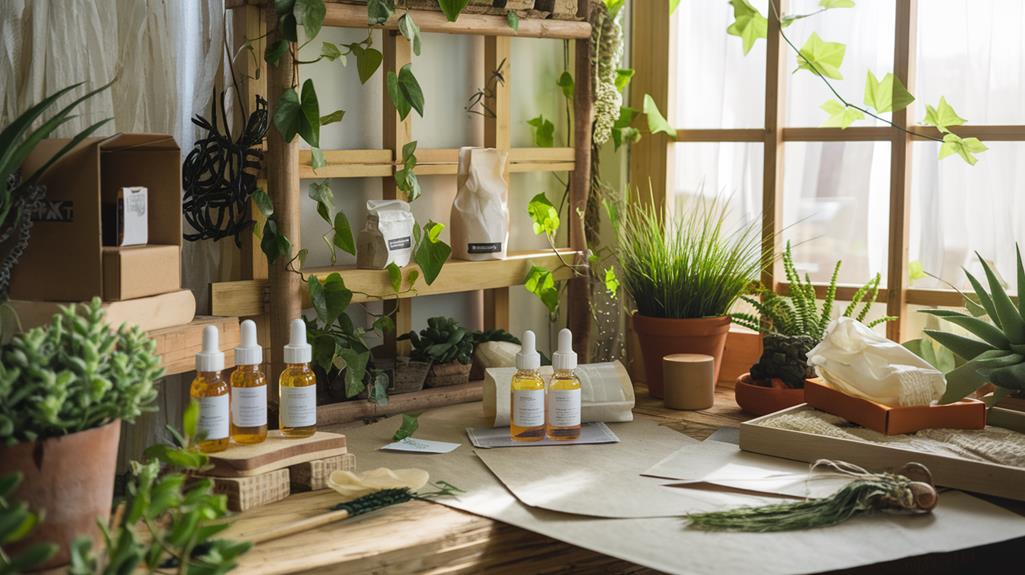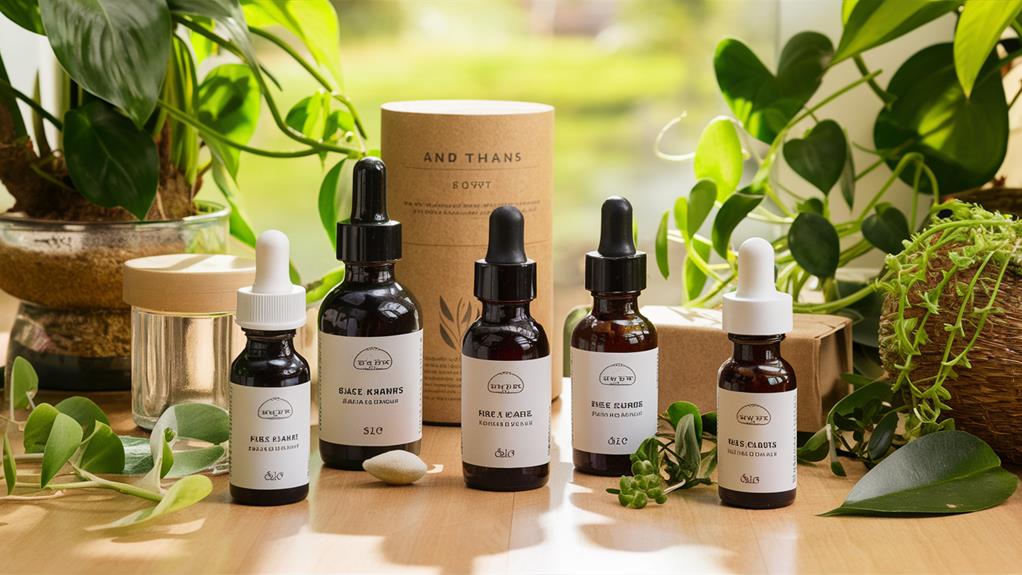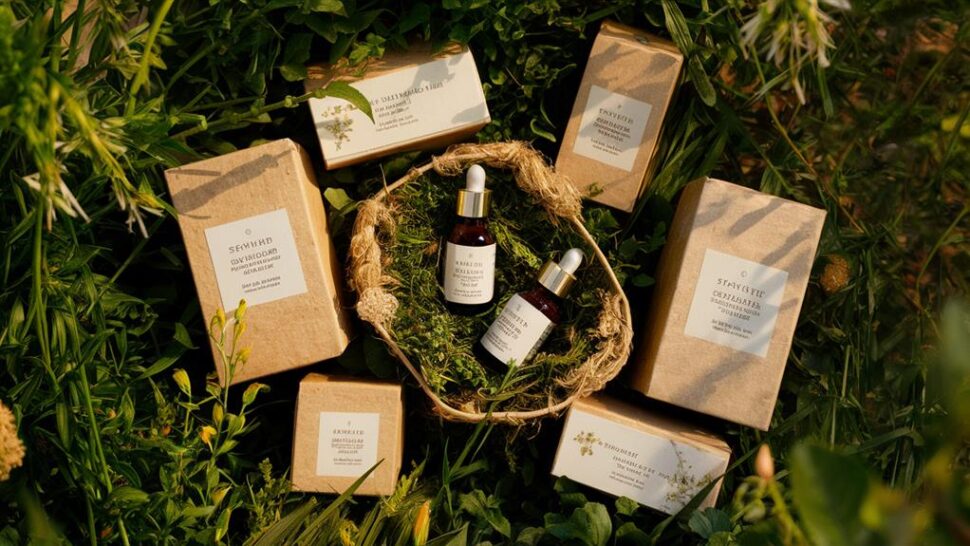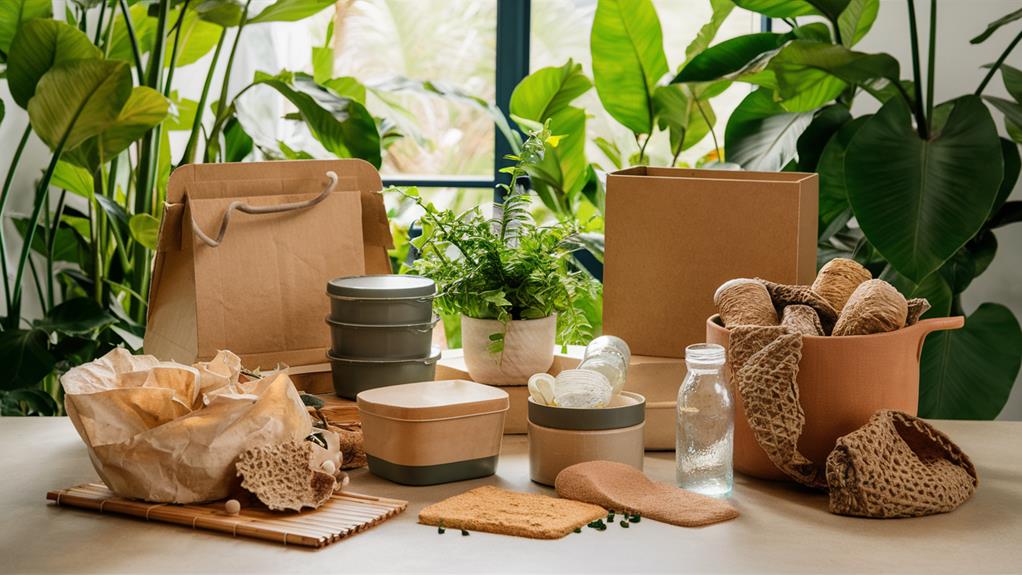
When you’re looking for sustainable packaging solutions for organic facial serums, consider options like biodegradable cornstarch or innovative seaweed materials. These eco-friendly choices not only protect your product but also resonate with conscious consumers. Refillable packaging can greatly cut down plastic waste, aligning your brand with a circular economy. Using high-quality, post-consumer recycled materials boosts your appeal and reduces environmental impact. Plus, custom designs highlight your unique brand identity. By integrating these strategies, you can foster customer loyalty and demonstrate your commitment to sustainability. Explore even more effective solutions to elevate your packaging game.
Main Points
- Utilize biodegradable materials like cornstarch or Sulapac for eco-friendly containers that align with organic product values.
- Consider refillable packaging options to minimize plastic waste and encourage customer loyalty among eco-conscious consumers.
- Implement custom packaging designs using post-consumer recycled (PCR) materials to enhance sustainability and brand image.
- Explore bamboo packaging as a renewable and biodegradable alternative that resonates with environmentally aware customers.
- Educate consumers on recycling practices to promote responsible disposal and enhance overall sustainability efforts.
Eco-Friendly Material Options

In the domain of choosing eco-friendly material options for facial serums, brands have a wealth of innovative choices at their fingertips.
Custom packaging solutions, such as high-quality materials like cardboard, guarantee durability while also being eco-friendly.
Post-Consumer Recycled (PCR) packaging is gaining traction, projected to grow to $18.8 billion by 2025, making it a flexible and sustainable option for organic facial serum packaging.
Bamboo packaging stands out as a biodegradable alternative that’s both renewable and brand-friendly.
Cornstarch packaging offers an organic, biodegradable solution derived from renewable resources, perfect for cosmetic containers.
Seaweed packaging is another unique choice, decomposing naturally and moldable for various shapes.
Finally, beeswax packaging not only protects serums but also supports local beekeeping efforts.
These materials pave the way for sustainable solutions that align with eco-conscious consumer preferences.
Refillable Packaging Benefits
Sustainable packaging options like biodegradable materials and recycled containers are paving the way for more innovative solutions in the beauty industry.
One standout solution is refillable packaging for organic facial serums. By opting for refillable systems, you greatly reduce plastic waste and foster a circular economy, encouraging consumers like you to return for refills instead of buying new containers.
Many brands are now offering customized packaging solutions that align with sustainable practices, enhancing their market appeal.
Brands that offer refillable options not only boost customer loyalty—67% of consumers prefer these sustainable packaging solutions—but also lower packaging costs by minimizing material use and shipping expenses.
Plus, many brands provide incentives such as discounts for participating in refill programs, making sustainability more engaging.
As the refillable packaging market grows, embracing these practices benefits both you and the planet.
Innovative Biodegradable Solutions

Biodegradable solutions are revolutionizing the packaging landscape for organic facial serums, offering eco-conscious choices that align with your values. Materials like Sulapac provide a fully compostable alternative to conventional plastics, ensuring your product looks premium while being sustainable.
Moreover, the rise of custom organic hemp soap boxes showcases the demand for sustainable packaging solutions that protect products while minimizing environmental impact. Seaweed packaging decomposes naturally, presenting a unique, eco-friendly option that doesn’t harm the environment.
Cornstarch packaging serves as an organic, biodegradable choice that resonates with your eco-friendly preferences. In addition, beeswax packaging not only protects your serums but also supports local beekeepers, showcasing a natural approach.
Custom Packaging Strategies
Custom packaging strategies are shaping the future of organic facial serums, enhancing brand identity while appealing to eco-conscious consumers. By utilizing eco-friendly materials like post-consumer recycled plastics and biodegradable options such as cornstarch or seaweed, you can align your packaging solutions with consumer preferences for sustainability.
Furthermore, incorporating custom serum boxes made from high-quality, eco-friendly materials not only boosts product protection and shelf appeal but also guarantees your organic facial serums maintain efficacy. Tailored packaging design not only boosts product protection and shelf appeal but also guarantees your organic facial serums maintain efficacy.
Innovations in technology, like 3D packaging design tools, make it easier to create bespoke packaging that fits your brand’s unique needs. Moreover, incorporating refillable options encourages repeat purchases and minimizes plastic waste, reinforcing your commitment to sustainable packaging practices.
Embrace custom packaging to stand out in a competitive market and resonate with environmentally conscious shoppers.
Waste Minimization Techniques

In today’s eco-conscious market, reducing waste in packaging is more than just a trend; it’s a necessity for brands committed to environmental stewardship.
To minimize waste effectively, consider these techniques:
1. Adopt refillable packaging to encourage reuse and reduce plastic waste, bolstering customer loyalty.
Implementing solutions like custom Kraft pillow soap boxes can further enhance sustainability by providing eco-friendly alternatives that resonate with consumers.
2. Utilize post-consumer recycled (PCR) materials to cut down reliance on virgin plastics, promoting a sustainable lifecycle.
3. Educate consumers on proper disposal and recycling practices to enhance overall waste minimization.

